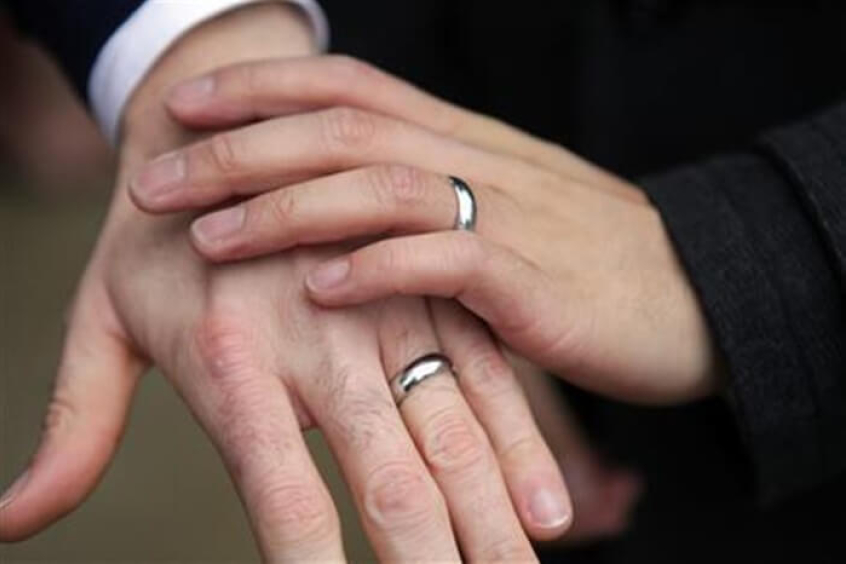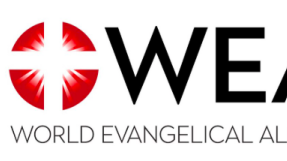A rallying cry for clergy opposed to same-sex relationships to "stand up and be counted" has been issued by the Church of England Evangelical Council (CEEC).
Guarding the deposit argues all gay relationships are a "disorder" and will "attract the eternal judgement of God". The 19-page discussion document was sent to all CofE bishops and evangelical leaders earlier in October and published last week.

The forthright statement comes as CofE bishops meet to discuss whether to offer some form of welcome or acceptance to gay couples in official liturgy.
But the document denies this compromise between full acceptance of gay marriage and the Church's current position would work. It would be a "recipe for continuing conflict" the CEEC said and insists allowing "the blessing of same-sex relationships would be a de facto change of Church of England doctrine".
Rt Rev Julian Henderson, Bishop of Blackburn, is president of the influential council and other bishops including Rt Rev Donald Allister, Bishop of Peterborough, and Rt Rev Tim Dakin, Bishop of Winchester, are members.
Together with all senior bishops in the CofE they will bring forward a recommendation to the ruling general synod at its next meeting in February.
"The best way forward" would be to restate the Church's position that any sex outside heterosexual marriage is sinful, the document says. "Effective sanctions" also need to be taken against clergy who go against this teaching, it argues, slamming "years of drifting" where several gay vicars have married without consequences.
The comprehensive document goes on to argue the slightest change in the CofE's stance would cause an "inevitable" split.
"There will need to be some visible 'differentiation' and division within the Church of England between those following this new teaching and those wishing to be in an 'apostolic community'."
The document analyses all various options of what a split might look like but calls on conservative Anglicans to warn bishops that any shift would have "inevitable consequences, leading to the divisions we all would not prefer".
Rt Rev Pete Broadbent, Bishop of Willesden, is a member of the CEEC. He told Christian Today: "The House of Bishops are still engaged in conversations about the nature and shape of pastoral provision in this area. Many evangelical Anglicans would agree with the analysis and the concerns expressed in the CEEC document that any move towards further liberalisation would bring to a head the divisions in the Church of England and might well cause a split. My role – and that of my colleagues in the House is to do all that I can to prevent a split and to hold people in the Church of England – though that will not be easy, given what is at stake."
But Canon Giles Goddard, vicar of St John's Waterloo and a pro-LGBT member of synod, said it was "sad they are refusing to engage".
He told Christian Today: "It feels like they are taking a position in order to discourage the reference group in the House of Bishops from making progress." He added he "certainly does not agree with the conclusion" that a split is inevitable.
"There are ways we can work together if there is a will to make it happen."
Goddard also insisted there are "very strong theological traditions that indicate same-sex relationships are blessed in the eyes of God.
"The Church needs to celebrate that."
Andrew Symes, from the conservative group Anglican Mainstream, said the Church had been shifting towards a change since the 2013 Pilling Report and said Guarding the deposit explained why this was "theologically very important".
He told Christian Today: "Some will be critical, asking why we should be discussing 'visible differentiation' or separation on the issue of sexuality, when evangelicals have tolerated liberal views on other matters in the heirarchy for decades.
"Others will see two of the options presented in the document – a renewed commitment to biblical orthodoxy or a negotiated separation – as impossible to achieve, leaving the more realistic prospect of the main body of the church continuing its gradual slide towards revisionism while small groups separate from it over time.
"I think the document, which doesn't see itself as the last word on the subject, is an important contribution to the debate on the future of the C of E in the context of a rapidly changing cultural context. It correctly identifies the importance of GAFCON and the Global South in holding the C of E to account for its 'apostolic faithfulness', and will serve as a call to many wavering evangelicals to stand firm for orthodox faith in the denomination."













